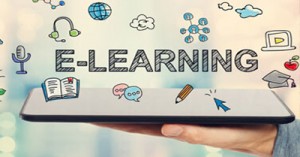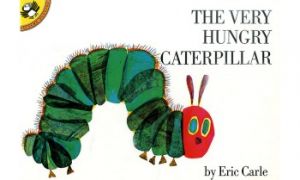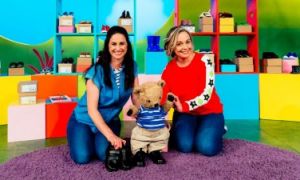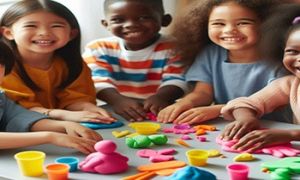A reflection allows us to analyze our experiences, make changes based on our mistakes, keep doing what is successful, and build upon our knowledge.
The following questions are to be used as a guide for reflecting on each of the standards within Quality Area 1. Use the information from these questions to recognize good practice or to change and improve what is not working well. It can also be used as part of Self-Assessment or Quality Improvement Plan.
Questions to guide reflection on practice for Standard 1.1
• How do we develop our understanding of the approved learning framework that we use in our service to foster learning outcomes for all children?
• How do we support all children to progress towards the learning outcomes?
• How do we learn about each child’s knowledge, strengths, ideas, culture, abilities and interests?
• How do we make decisions about children’s daily experiences and routines, and who is involved in making these decisions?
• How do we use the learning outcomes to guide our goals and subsequent planning for individual children and groups of children?
• How do we plan and implement educational programs that are relevant and engaging for children?
• How do we ensure that experiences and routines are child-centred rather than adult-directed or clock-driven?
• How do we support every child’s participation in the program?
• What experiences do we provide for children to work independently and collaboratively?
• How do we use conversations and interactions with children to make routine times enjoyable and meaningful learning opportunities?
• How do we develop a shared understanding of the learning outcomes and their importance to families?
• How do we ensure that children develop strong attachments and a sense of belonging in our service?
• How do we apply our knowledge of learning and development, and the content of the learning framework to this age group?
• How do we incorporate learning outcomes into leisure opportunities and the everyday experiences we provide?
• How do we provide problem-solving, inquiry and challenge-based learning experiences for children to support their prior learning?
• How do we provide a differentiated curriculum that supports children’s varying capabilities, learning styles and interests?
• How do we incorporate the learning outcomes into everyday activities that children experience in the residence?
• What other activities or experiences can be incorporated into our program to ensure a range of learning opportunities for all children?
Questions to guide reflection on practice for Standard 1.2
• How do we demonstrate intention in our practice and how does this impact on outcomes for children?
• How do we reflect on the range of intentional strategies suggested in the approved learning framework/s to support children’s development and learning (for example, modelling and demonstrating, open questioning, speculating, explaining, engaging in shared thinking and problem-solving?
• How responsive are we to children’s ideas, thinking and interests?
• How do we demonstrate that we value children’s ideas, thinking and interests?
• How do we extend the program and experiences being offered to each child and/or groups of children?
• How can we improve the ways in which we engage children in making decisions about their own learning?
• How do we arrange activities, routines and the physical environment to support children to make choices about what they would like to do and how they will do it?
• Do we provide children with the opportunity to make choices in circumstances where we promote their agency?
• How do planned or intentional aspects of the program support spontaneous play and leisure experiences initiated by children?
Questions to guide reflection on practice for Standard 1.3
• How do we ensure that the way we document and plan for children’s learning aligns with current approaches?
• How can we work collaboratively with each family to share information about children’s learning, development and participation in the program?
• How do we recognise and support continuity of learning at the service, and how does information gathered from each child’s home, school or other support service inform planning for continuity of learning?
• What do we do to critically reflect on and evaluate the program, how is this documented and how are our evaluations used to make informed curriculum decisions to improve outcomes for children?
• How do we use critical reflection when discussing programs with colleagues?
• How do we critically reflect on all aspects of pedagogical practice so that quality improvements occur?
For more information on how to write Reflections: Reflective Practices In Childcare
References:
New Guide To The National Quality framework, ACECQA, Oct 2017







 Here is the list of the EYLF Learning Outcomes that you can use as a guide or reference for your documentation and planning. The EYLF
Here is the list of the EYLF Learning Outcomes that you can use as a guide or reference for your documentation and planning. The EYLF The EYLF is a guide which consists of Principles, Practices and 5 main Learning Outcomes along with each of their sub outcomes, based on identity,
The EYLF is a guide which consists of Principles, Practices and 5 main Learning Outcomes along with each of their sub outcomes, based on identity, This is a guide on How to Write a Learning Story. It provides information on What Is A Learning Story, Writing A Learning Story, Sample
This is a guide on How to Write a Learning Story. It provides information on What Is A Learning Story, Writing A Learning Story, Sample One of the most important types of documentation methods that educators needs to be familiar with are “observations”. Observations are crucial for all early childhood
One of the most important types of documentation methods that educators needs to be familiar with are “observations”. Observations are crucial for all early childhood To support children achieve learning outcomes from the EYLF Framework, the following list gives educators examples of how to promote children's learning in each individual
To support children achieve learning outcomes from the EYLF Framework, the following list gives educators examples of how to promote children's learning in each individual Reflective practice is learning from everyday situations and issues and concerns that arise which form part of our daily routine while working in an early
Reflective practice is learning from everyday situations and issues and concerns that arise which form part of our daily routine while working in an early Within Australia, Programming and Planning is reflected and supported by the Early Years Learning Framework. Educators within early childhood settings, use the EYLF to guide
Within Australia, Programming and Planning is reflected and supported by the Early Years Learning Framework. Educators within early childhood settings, use the EYLF to guide When observing children, it's important that we use a range of different observation methods from running records, learning stories to photographs and work samples. Using
When observing children, it's important that we use a range of different observation methods from running records, learning stories to photographs and work samples. Using This is a guide for educators on what to observe under each sub learning outcome from the EYLF Framework, when a child is engaged in
This is a guide for educators on what to observe under each sub learning outcome from the EYLF Framework, when a child is engaged in The Early Years Learning Framework describes the curriculum as “all the interactions, experiences, activities, routines and events, planned and unplanned, that occur in an environment
The Early Years Learning Framework describes the curriculum as “all the interactions, experiences, activities, routines and events, planned and unplanned, that occur in an environment


